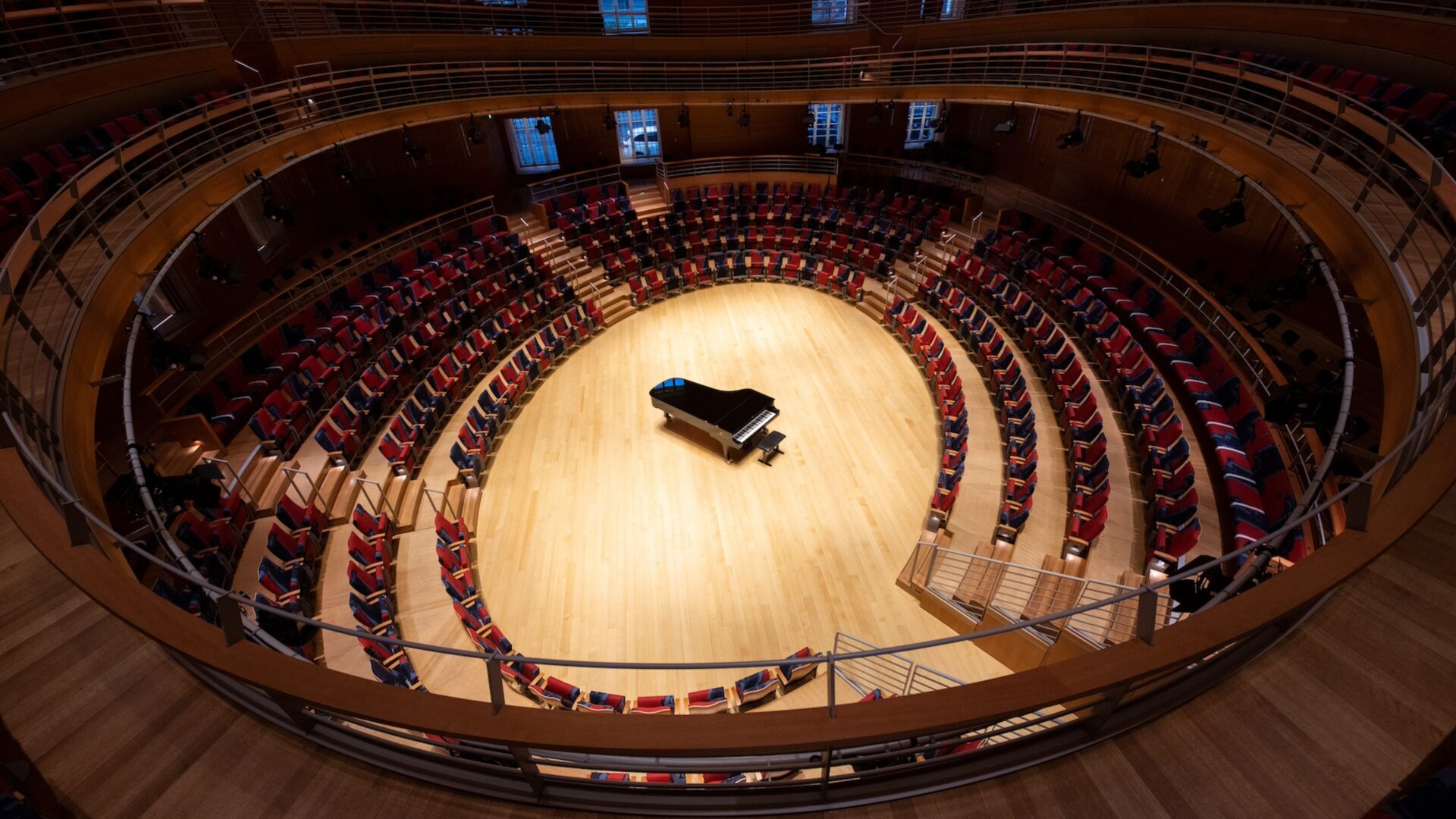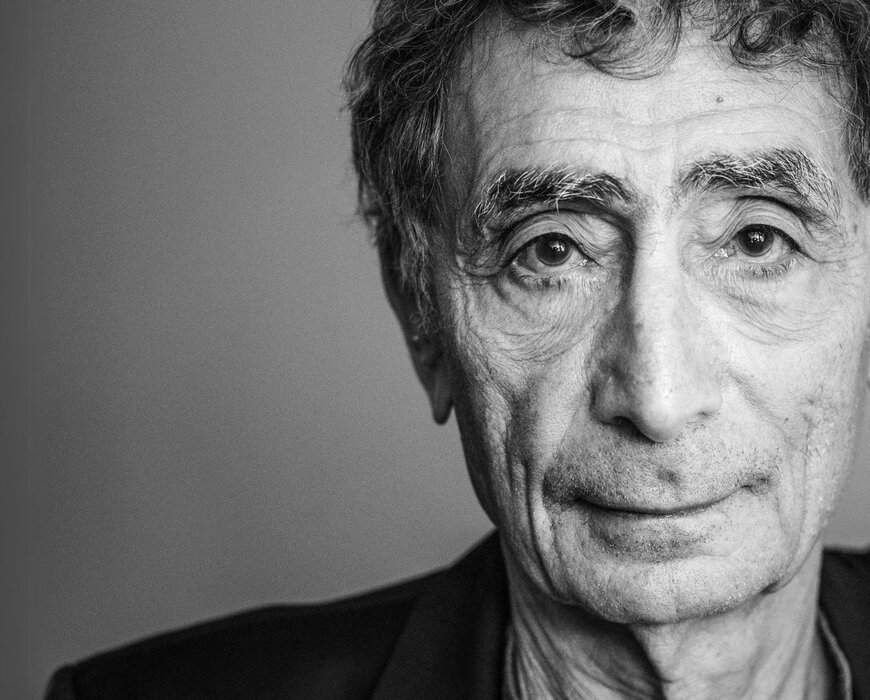Sun, June 16, 2024 at 4:00 PM
WASMUTH LECTURE
Gabor Maté & Macartan Humphreys
Pierre Boulez Saal
Traumata in Israel and Palestine
Gabor Maté in Conversation with Macartan Humphreys
Presented in English
In the series of Wasmuth Lectures, authors and scholars from the fields of the arts, science, and politics address central issues of our time. The series is generously supported by the Johannes Wasmuth Foundation, which honors the memory of the gallery owner, art collector, and curator who died in 1997. This year’s guest is Gabor Maté, one of the world’s leading trauma experts.
With the events of October 7, 2023, at the very latest, the Israeli-Palestinian conflict has once again become the focus of global attention. Approximately 1,200 Israelis were killed during the terrorist attack of Hamas, and more than 5,500 people on Israeli territory were injured—most of them civilians. 239 hostages were taken to Gaza, many of whom are still being held captive by Hamas. The war Israel has waged against Hamas since October 7 has caused catastrophic suffering among the Palestinian civilian population. More than 34,000 Palestinians have died, the majority of them civilians. Approximately 77,000 people have been injured, there is not enough food, and large parts of Gaza have been destroyed and are uninhabitable. Almost overshadowed by this war, there has been a new escalation of violence in the West Bank.
The long history of the Israeli-Palestinian conflict is closely interwoven with the many historical and current traumatic experiences within the Israeli and Palestinian societies. The Shoah and the centuries-old history of antisemitism have left a profound mark on the Israeli population over generations. The consequences of the Nakba and the experience of displacement, loss, and an existence under occupation have had a huge impact on generations of Palestinians. The violence of a decades-long conflict, war, terrorism, and life under a constant state of emergency shape collective and individual memory on both sides. The conflict also polarizes societies in other parts of the world as few other topics do—in many places, a nuanced discussion of the consequences of war and terror seems no longer possible.
Gabor Maté was born in Hungary just before the end of World War II and narrowly escaped deportation at the hands of the German occupying forces. He views the Israeli-Palestinian conflict through the lens of his own life story and from the perspective of a physician. Maté makes his arguments by looking at the history—and the stories—of both sides while maintaining a critical distance to them and at the same time showing great empathy. His readings and talks across the U.S. and Europe thus draw interested listeners, regardless of where they come from. For this event, he will speak with Irish political scientist Macartan Humphreys, director of the research unit Institutions and Political Inequality at the Berlin Social Science Center (WZB), who is known for his research on political institutions, political inequality, and conflicts.
Gabor Maté is a retired physician who, after 20 years of family practice and palliative care experience, worked for more than a decade in Vancouver’s Downtown East Side with patients challenged by drug addiction and mental illness. The bestselling author of five books published in nearly 40 languages, including the award-winning In the Realm of Hungry Ghosts: Close Encounters with Addiction, he is an internationally renowned speaker highly sought after for his expertise on addiction, trauma, childhood development, and the relationship of stress and illness. For his ground-breaking medical work and writing, Gabor Maté has been awarded the Order of Canada, his country’s highest civilian distinction, and the Civic Merit Award from his hometown, Vancouver. His most recent book, The Myth of Normal: Trauma, Illness and Healing in a Toxic Culture is a New York Times and international bestseller.
Macartan Humphreys is director of the research unit Institutions and Political Inequality at the WZB and honorary professor of Social Sciences at Humboldt University and at Trinity College Dublin. His research has examined political violence, ethnic and race-based discrimination, and post-conflict development. He has published widely in peer-reviewed journals and has authored or coauthored books on ethnic politics, natural resource politics, and game theory. He sits on the editorial boards of the American Political Science Review and the Journal of Conflict Resolution.
In cooperation with the WZB Berlin Social Science Center
All ticket revenue will benefit the scholarship fund of the Barenboim-Said Akademie.
Artists
Talk
Talk
Clarinet
Violin
Violin
Viola
Violoncello
Program
EVENT TIMELINE
PARTNER
YOUR VISIT
How To Get There
Pierre Boulez Saal
Barenboim-Said Akademie
Französische Straße 33d
10117 Berlin
_____
Public Transport
U-Bahn U2 Hausvogteiplatz, U5 Museumsinsel, U6 Unter den Linden
S-Bahn S / U Friedrichstraße
Tram M1, 12 Mitte / Am Kupfergraben
Bus 147 Werderscher Markt; 100, 300, N5 Staatsoper
Bicycle
Bicycle racks are available on the street “Hinter der Katholischen Kirche.”
Car
Q-PARK parking garage Unter den Linden / Staatsoper
Bebelplatz 2
10117 Berlin
Theater rate (5.30 pm – 11.30 pm, paid in advance): €10
Please note there is a construction site across from the hall on Französische Straße. The street is narrowed, and cars or taxis are not allowed to stop in front of the Pierre Boulez Saal entrance.
Opening Hours
Box Office
Monday to Friday 2 pm to 6 pm
Closed on weekends and holidays
On performance days, the box office opens one hour prior to an event on weekdays and two hours on Saturdays, Sundays, and holidays.
Papagena Call Center
Ticket hotline +49 30 4799 7411
Monday to Saturday 9am to 8pm
Sunday and public holidays 2pm to 8pm
Food & Drinks
Casalot Catering welcomes Pierre Boulez Saal visitors before and after concerts, serving a variety of dishes of Arab cuisine.
On concert nights, the bar opens one hour before the start of an event and remains open after the performance. You may also place pre-orders for intermission right at the counter.
More informantion on our catering can be found here.
Coat Check
Small bags up to a maximum size of A4 (21x30 cm) and jackets may be taken into the concert hall. Luggage, helmets, large umbrellas, and other bulky items must be stored at the coat check.
The coat check is free and located behind the staircase in the foyer, on the left-hand side.
Accessibility
To book wheelchair-accessible seating, other seats for visitors with disabilities, or companion seats, please contact us directly.
+49 30 4799 7411
tickets@boulezsaal.de
All wheelchair seats are accessible by elevator. All visitors, including patrons using a wheelchair, will enter the Pierre Boulez Saal through the main entrance. Tickets will be checked at the hall doors.
In order to make access as easy as possible, we kindly ask that you inform us of your requirements when booking your tickets.
Restrooms for visitors with disabilities are located in the basement and on the balcony level and are accessible by elevator.
Four parking spaces for visitors with disabilities are available on the street Hinter der Katholischen Kirche.

